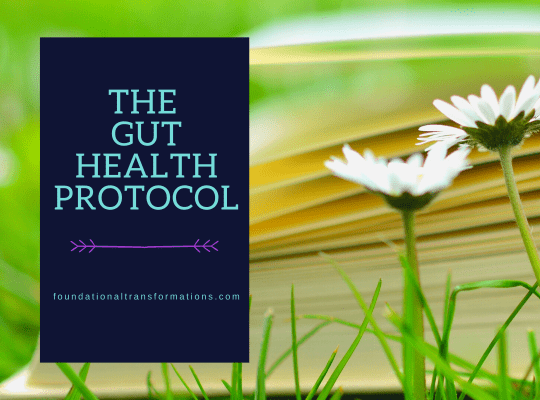Do you find yourself wondering why you experience frequent bouts of upset stomach, weight fluctuations, changes in your complexion, intolerances to certain foods, and general fatigue or sluggishness? You might be experiencing poor gut health. We’ll discuss how to restore gut health and steps you can take toward feeling better overall.
What is Gut Health?
Gut health can mean and be defined as how your gastrointestinal (GI) tract functions and the balance of good and bad bacteria. This can include the overall status and health of your stomach, esophagus, and intestines, etc. It’s quite important to monitor your gut health as it has a great impact on your overall well-being. As your food moves through your digestive tract, nutrients are absorbed through your GI tract. Ensuring optimal gut health is important for processing your food and obtaining ideal levels of nutrition.
How Can I Tell if I have Gut Health Issues?
It’s not uncommon to feel tired after a heavy meal or to experience gastrointestinal duress on occasion if you’ve eaten something bad or outside of your normal routine. However, if you are noticing things that are impacting your overall daily health negatively regularly, you might want to check in on your gut health. Some issues or signs that might arise are:
- weight loss or gain
- gas
- bloating
- constipation or diarrhea
- vomiting
- nausea
- stomach pain
- in more severe cases such as blood in your stool.
As always to rule out any potentially serious health conditions, be sure to notify and speak with your primary care physician.
What Impacts Gut Health?
Because your gastrointestinal tract is so important many factors can potentially have an impact on your gut health. Things and practices that may seem entirely unrelated can play a huge part in your overall gut health. Sleep, exercise, and any medications you may put into your body can potentially alter your gut health.

How to Restore and Improve Gut Health
Now that you have a fundamental understanding of gut health and what can change it, you might be wondering how to improve your GI wellbeing:
Manage cortisol and stress levels
Stress can have so many general adverse effects on your health, especially your digestive tract. Try relaxation techniques such as breathing exercises, meditating, or making time to do something you enjoy to blow off some steam.
Rest
Following closely behind managing your stress levels is ensuring that you are resting enough. Not getting enough sleep can promote stress in your “day”. Getting enough sleep allows your body to recharge and have enough energy to properly process all the things you consume daily.
Get Moving
Exercising is good for you and it helps with weight management, stress management and also has a great impact on your gut health. The best thing about exercise is that there are so many variations. It’ll be fairly simple to find a method of exercising that fits into your lifestyle.
Change Your Diet
Avoiding heavily processed foods and eating things that are unhealthy will only help your cause to improve gut health. Making better diet choices for foods that are high in fiber, taking probiotics, and getting enough water to stay hydrated can only benefit you.
Final Thoughts
At the end of the day, it’s pretty impressive just how important it is to learn how to restore gut health. Your GI tract is connected to and has an impact on so many other parts of your body physically and mentally. Taking special care to optimize different facets of your health will only promote your overall wellbeing.





